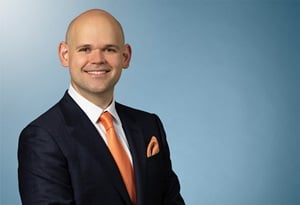NLRB Finds Secret Workplace Recordings to Be Protected Activity
On February 13, 2022, the National Labor Relations Board (NLRB) held that Starbucks violated federal labor law at multiple locations in Philadelphia in 2019 and 2020. The decision, issued by the NLRB’s three Democrats, found that Starbucks unlawfully threatened, surveilled, and interrogated employees, prohibited discussion of terms and conditions of employment, reduced the work hours of union supporters, and ultimately terminated two employees for engaging in protected activity.
In ordering the reinstatement of the two terminated employees, the NLRB rejected Starbucks’ argument that the employees were not entitled to backpay or reinstatement because they secretly recorded Starbucks managers in violation of company policy and Pennsylvania state law. The NLRB reasoned that, in these circumstances, covertly recording management was protected activity under the National Labor Relations Act (NLRA). The NLRB found that the two employees secretly recorded management for the purpose of preserving evidence for a possible future legal dispute. The employees argued they made the recordings out of concern that Starbucks management would later discipline them for raising complaints about management, discussing their terms and conditions of employment, and supporting unionization – all conduct protected by the NLRA. The NLRB agreed. In fact, some of the recordings made by the two employees were ultimately used as evidence in this proceeding.
The NLRB also rejected Starbucks’ argument that making such recordings was not protected because it violated company policy and state law. With regard to company policy, the NLRB observed that facially neutral policies that are overbroad and can be applied to restrict protected activity are unlawful. A policy that generally prohibits workplace recordings could be used to prevent protected recordings like those made in this case is therefore unlawful and cannot be used to avoid the backpay and reinstatement remedy.
Likewise, the NLRB was unpersuaded that backpay and reinstatement were inappropriate where such covert recordings violated Pennsylvania’s two-party consent law which makes it unlawful to unilaterally record any oral communications unless all parties consent to the recording. The NLRB acknowledge that Starbucks certainly has an interest in protecting employee privacy and complying with state law, however, where a state law attempts to regulate conduct that is arguably protected by federal labor law, the state law is preempted. Accordingly, backpay and reinstatement were appropriate regardless of the whether the recording violated state law because such conduct was protected by the NLRA.
This case has significant implications, particularly for employers in states with two-party consent laws. As a result of this decision, employers may face liability if they terminate an employee who makes unilateral covert recordings in violation of state law where those recordings are made for the purpose of documenting alleged labor law violations or preserving evidence for a possible future legal dispute. The decision also raises concerns about the outer bounds of federal labor law preemption. Numerous state laws designed to protect individual privacy in the workplace may now be at risk of being preempted by federal labor law. If you have any questions about these decisions or how they may impact your business, please contact an attorney on the Faegre Drinker labor and employment team.



